Disclosure: Meeple Mountain received a free copy of this product in exchange for an honest, unbiased review. This review is not intended to be an endorsement.
I’m not a tableau guy. I’m not anti-tableau by any means—Race for the Galaxy is one of my favorite games. They’re not a genre I seek out, though. My distaste is mild enough that the realization only came to me recently, after a game of 51st State. My friend Nathan said, “Tableau builders aren’t my thing, but if I were to play one, this is the one I’d play,” and I realized the same was true for me.
It explains a lot. Wingspan? Nah. Everdell? Eh. Terraforming Mars? Best for all involved that I don’t. I think my distaste comes from the fact that I prefer my games streamlined, and running calculus around a bevy of unique cards turn after turn is not streamlined. There’s also some (irrational) part of me that has come to regard an appetite for combos as one of board gaming’s baser instincts, and I’m suspicious of anything that appeals to it.
Look, nobody’s perfect.
This is not meant to yuck your yum. If anything, these realizations have made me more understanding of the popularity of the above-mentioned games. It also has me trying to figure out why I like 51st State so very much.
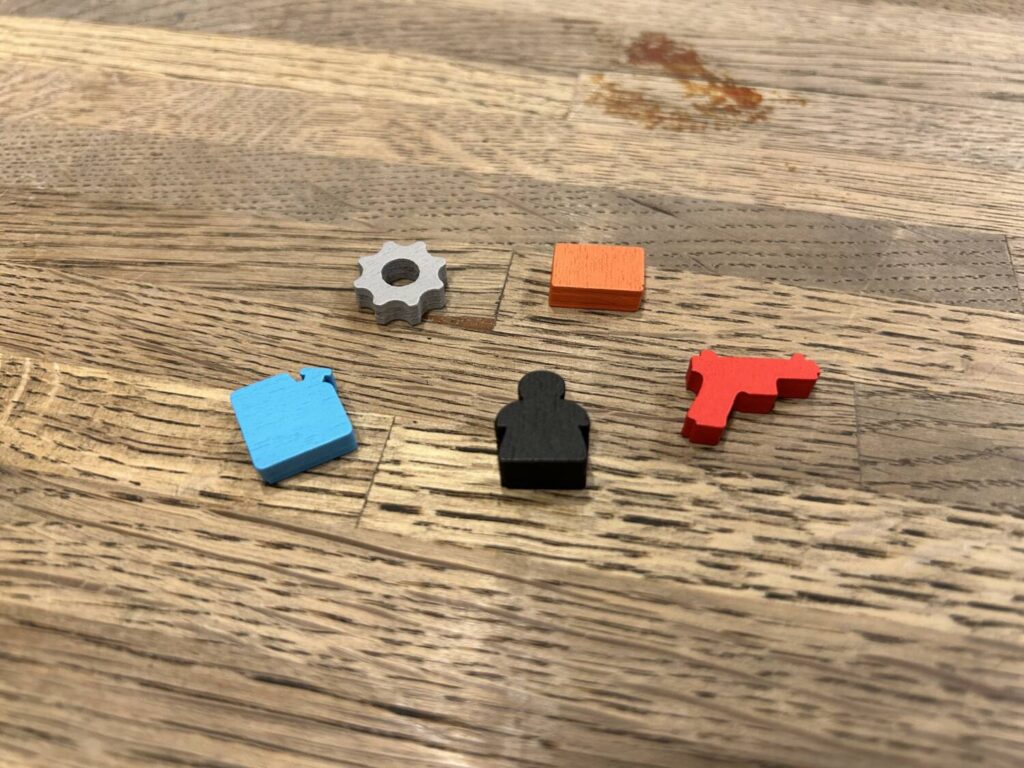
State Constitution
51st State takes place in a post-apocalyptic wasteland in which factions vie for supremacy. As the head of one of those factions, each player favors a somewhat different strategic approach. The tableau that you build over the course of the game is your settlement, consisting of various buildings and locations. Cards come in three varieties: Production, which gives you resources at the start of each round; Features, which typically grant static effects; and Actions, which give you actions to use during each round.
The rounds consist of an indeterminate number of turns. Moving around the table, players take one action at a time. Broadly speaking, you can convert or generate resources, play a card from your hand, attack an opposing settlement, or pass.
Describing the card play as “play a card from your hand” is reductive, since these cards are—drum roll, please—multi-use. You can use a card in your hand for one of three potential purposes: it can be played as the building shown on the card, adding the card and its ability to your tableau; it can be Razed (discarded) for a one-time bonus; or it can be turned into a Deal, granting you the resource listed at the beginning of each round.
Attacking opposing settlements nets you an immediate benefit, and deprives your opponents of potential key pistons from their engines. Normally, I don’t like that kind of player interaction, but 51st State does a few things to take the sting out.
For one, Razing is expensive. Without just the right series of cards in the base game, it’s not something anyone will be doing aggressively in the early stages of the game. For another, the player whose building is Razed also gets a modest bonus. Finally, the ruins left behind in the wake of a Raze are easy to turn into valuable buildings, and for cheap. Raze me, I dare you.
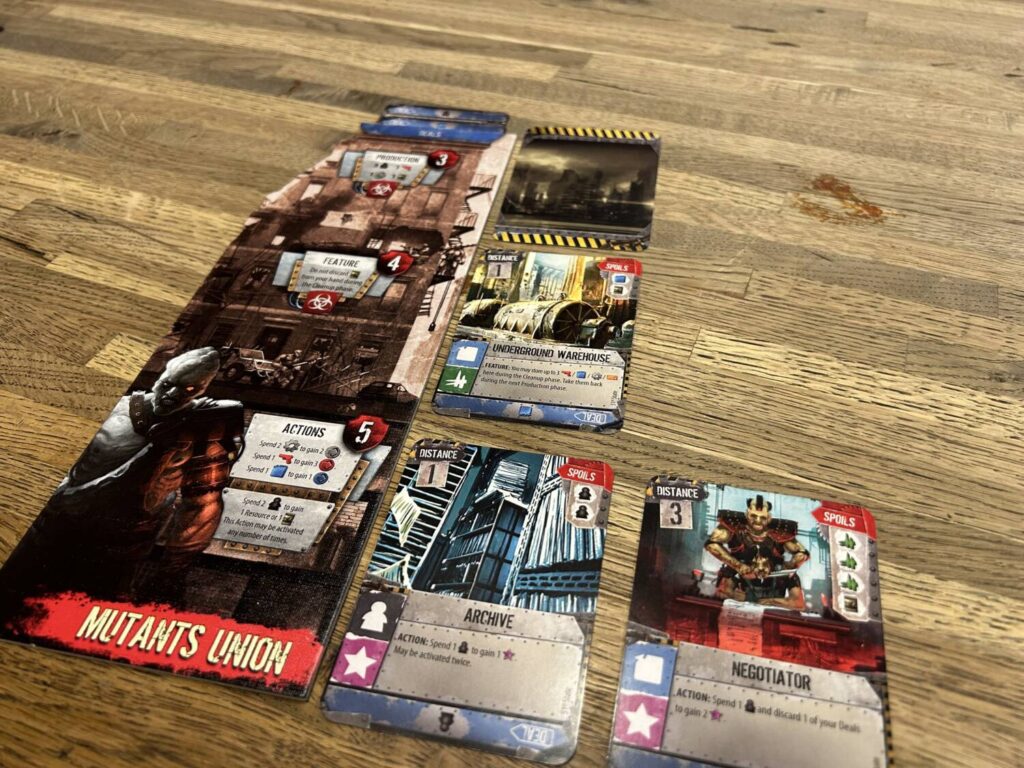
Oh, and there’s the possibility of passing defensively. Once you pass, your cards are safe from other players, and most resources don’t carry over between rounds, meaning they’d have to start over again at square one to take you out. All these mitigating factors come together to make the Take That of Razing blend into the whole without too much tumult.
Each round ends once every player has passed. The game ends when one or more players exceed 25 points. A wide and flexible decision space melded onto a ruleset that isn’t hard to learn provided someone at the table has played before, 51st State is an unquestionable winner.
Tableaux
Part of the appeal of the Ultimate Edition is the inclusion of six expansions, which I’ll go over briefly. In short, they’re great. All of them stretch the game in unexpected and entertaining directions, emphasizing different aspects of the design without ever losing coherency.
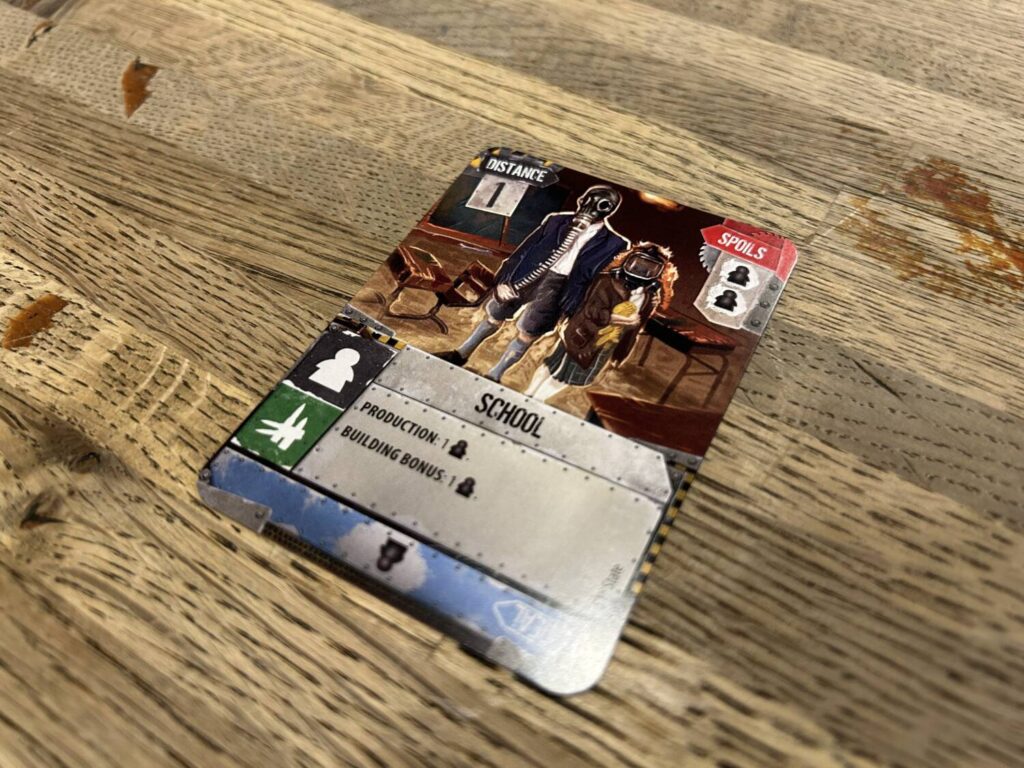
Two of the expansions, Winter and New Era, fall into the category of More. Neither introduces new mechanisms, but each fleshes out a different part of the game. Winter, in seeming contradiction with its name, opens the floodgates on resource production and consumption. Not only do you have more resources, you have more things to do with those resources. Winter strikes me as the most forgiving of the different possible 51st States.
New Era kicks 51st State into more aggressive territory, with more rewards for Razing and more impetus to make Deals. That pairing is such a smart design choice, short-circuiting any possibility of players getting frustrated. With both Winter and New Era, I flipped through the decks for the first time thinking “Oh, man!, I wish I’d had this card for that one game.” That’s a great sign, and both delivered on that promise.
The other expansions—Scavengers, Allies, Moloch, and No Man’s Land—go further afield. Scavengers adds individual player discard piles, and does a great deal to make ruins more useful for players. You find yourself gazing deep into the eyes of an aggressive opponent and whispering, “Raze me, daddy.” Scavengers is probably my favorite expansion, all told.
Moloch adds communal threats that you have to work together to solve, but there’s a nastiness to it. Only the player who puts the final nail in the coffin of each robot will reap the rewards. In a way, it’s in your interest not to help. Cooperative and nasty, a fine combination.
The last two expansions, Allies and No Man’s Land, are the two that I find myself least convinced by so far. Allies narrows your options in a way that makes the game feel more luck-based, and No Man’s Land adds an area control aspect to the middle of the table that isn’t bad on its own merits so much as it suffers in comparison to every other version of this game. 51st State is reliably firing at an 8 or 9. No Man’s Land is more of a 7.5.
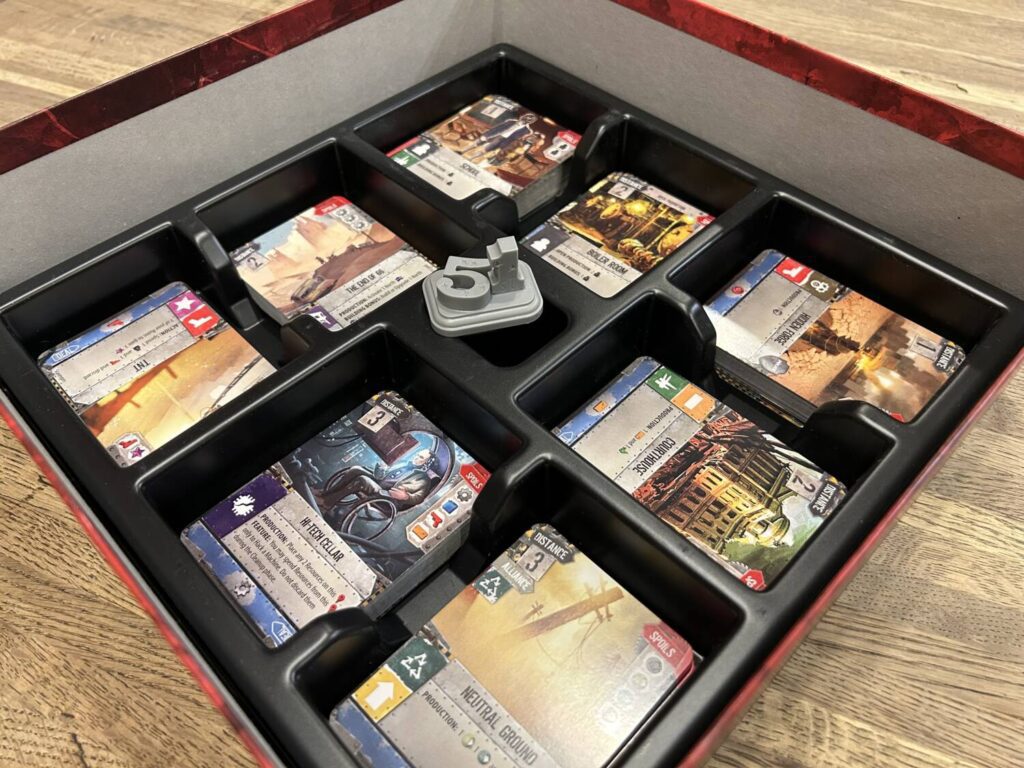
Deep State
As I said before, 51st State is terrific, and 51st State: Ultimate Edition gets so much right. The instruction manual has personality and does a great job teaching you the game. The box is the size it needs to be to hold everything. The card stock is good. The print quality is excellent. The included solo modes are, from what I’ve experienced, pretty good. My only note is about the insert, which would surely have been better off as a series of sideways slots; the box as it is cannot travel sideways unless the box is held firmly closed. I find myself wanting to track down all the exclusive bits from the Gamefound campaign. It’s that kind of game.
51st State: Ultimate Edition can proudly pull up a chair next to Race for the Galaxy at the table of the best that tableau building has to offer. It’s flexible. It’s clever. It’s deep. It’s reactive. While Race for the Galaxy can be impenetrable due to its heavy use of iconography, 51st State is almost entirely text, which is more inviting for first-time players. It is also a long enough game that it leaves room for players with a losing strategy to pivot, something that can only be pulled off in Race by the very best of players, or against the very worst of opponents.
I’m still not a tableau guy, but I am emphatically pro-51st State.


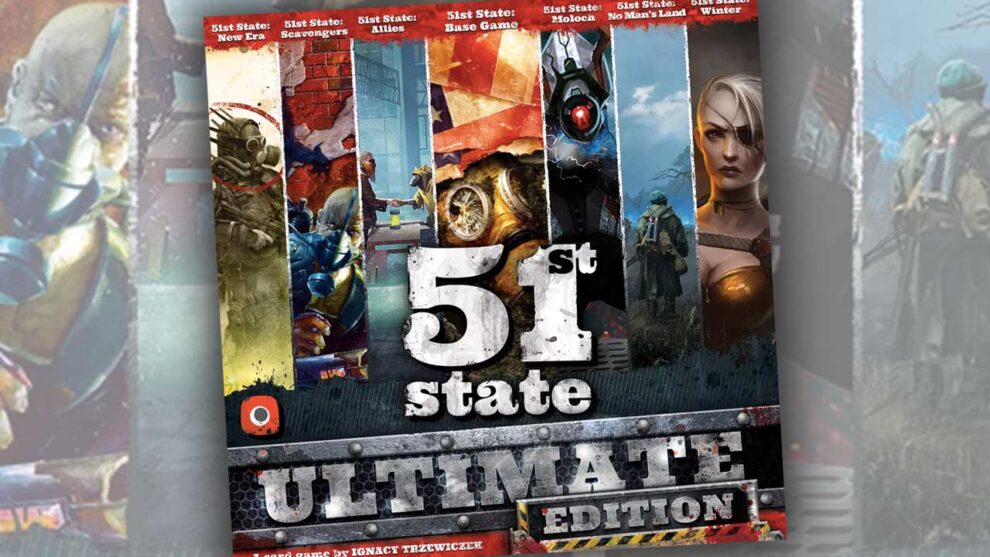









51st state is a great game for two or for four player in a team play “two against two”.
For the life of me I can’t see why this game is so popular. It ostensibly takes place in a post apocalyptic world but there is no feel of it being in any world let alone a post apocalyptic one.. It feels like a glorified game of harp solitaire only with fancy cards